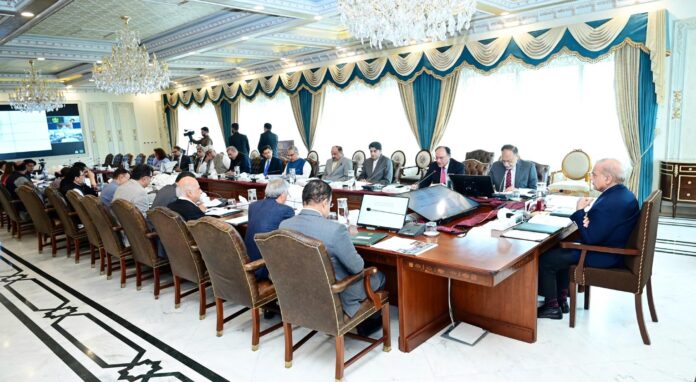The Cabinet Committee on Institutional Reforms on Friday recommended curtailing 150,000 vacant positions, banning contingency recruitment, and outsourcing non-core services like cleaning and janitorial work, which will gradually phase out many positions in grades 1 to 16.
In a meeting chaired by Prime Minister Muhammad Shahbaz Sharif focused on reducing public sector size and expenses, the committee, led by the Federal Finance Minister, presented its recommendations for right-sizing federal government departments. The Ministry of Finance was tasked with overseeing the cash balances of other federal ministries.
The committee provided a detailed briefing on recommended reforms for five federal ministries: the Ministry of Kashmir Affairs and Gilgit-Baltistan, the Ministry of State and Frontier Regions (SAFRON), the Ministry of Information Technology and Telecommunication, the Ministry of Industry and Production, and the Ministry of National Health Services.
One key proposal involves merging the Ministry of Kashmir Affairs and Gilgit-Baltistan with the Ministry of State and Frontier Regions. The committee also proposed closing 28 institutions across these five ministries, transferring the Privatization Ministry and some other ministries to federal units, and merging 12 institutions within these ministries.
During the meeting, the prime minister directed that these proposed reforms be approved by the Federal Cabinet and that a comprehensive plan for their implementation be presented. He emphasized that reducing government expenditure was his top priority.
The government’s institutional reforms aim to lessen the burden on the national treasury and improve the quality of public services, he stated.
The prime minister directed that institutions failing to demonstrate adequate public service performance and burdening the national exchequer should be either terminated immediately or privatized without delay.
The prime minister also vowed to personally oversee the Small and Medium Enterprises Development Authority (SMEDA), an organization supporting small and medium enterprises, and directed that SMEDA be brought under the Prime Minister’s Office.
Federal Minister for Planning Ahsan Iqbal, Federal Minister for Economic Affairs Ahad Khan Cheema, Federal Minister for Finance and Revenue Muhammad Aurangzeb, Federal Minister for Industries and Production Rana Tanveer Hussain, Minister of State for Information Technology and Telecom Shaza Fatima, Minister of State for Finance Ali Pervaiz Malik, Deputy Chairman Planning Commission Jahanzeb Khan, Prime Minister’s Coordinator for National Health Dr. Malik Mukhtar Ahmed Bharath, Prime Minister’s Coordinator Bilal Azhar Kayani, and other relevant senior government officials participated in the meeting.




